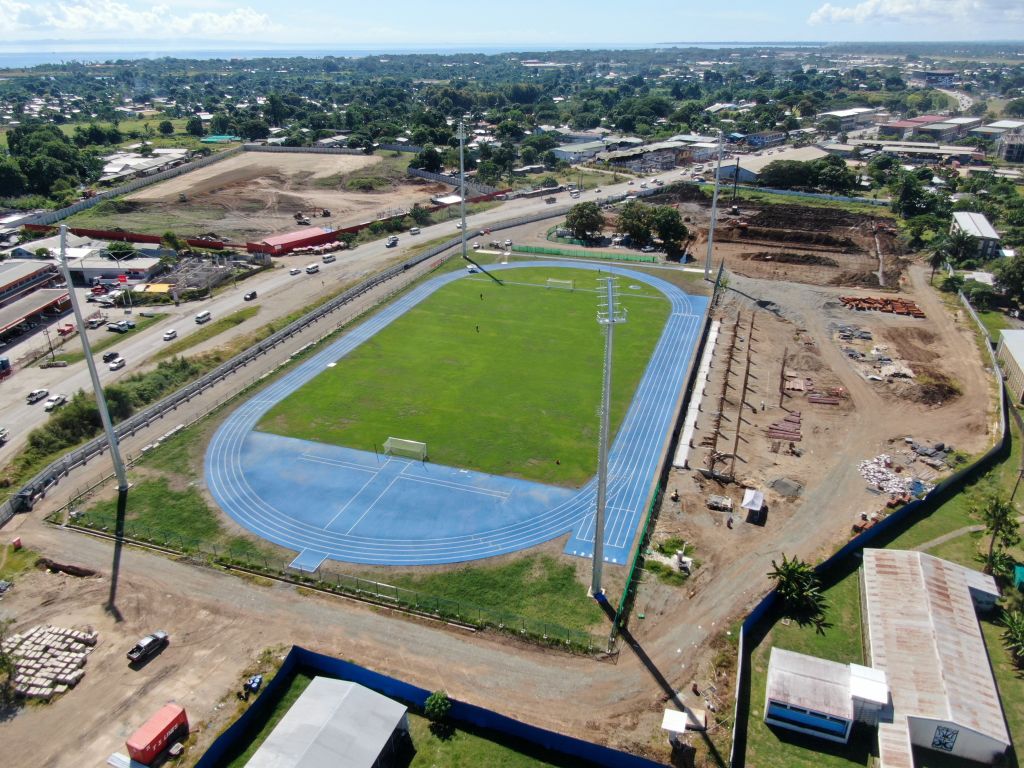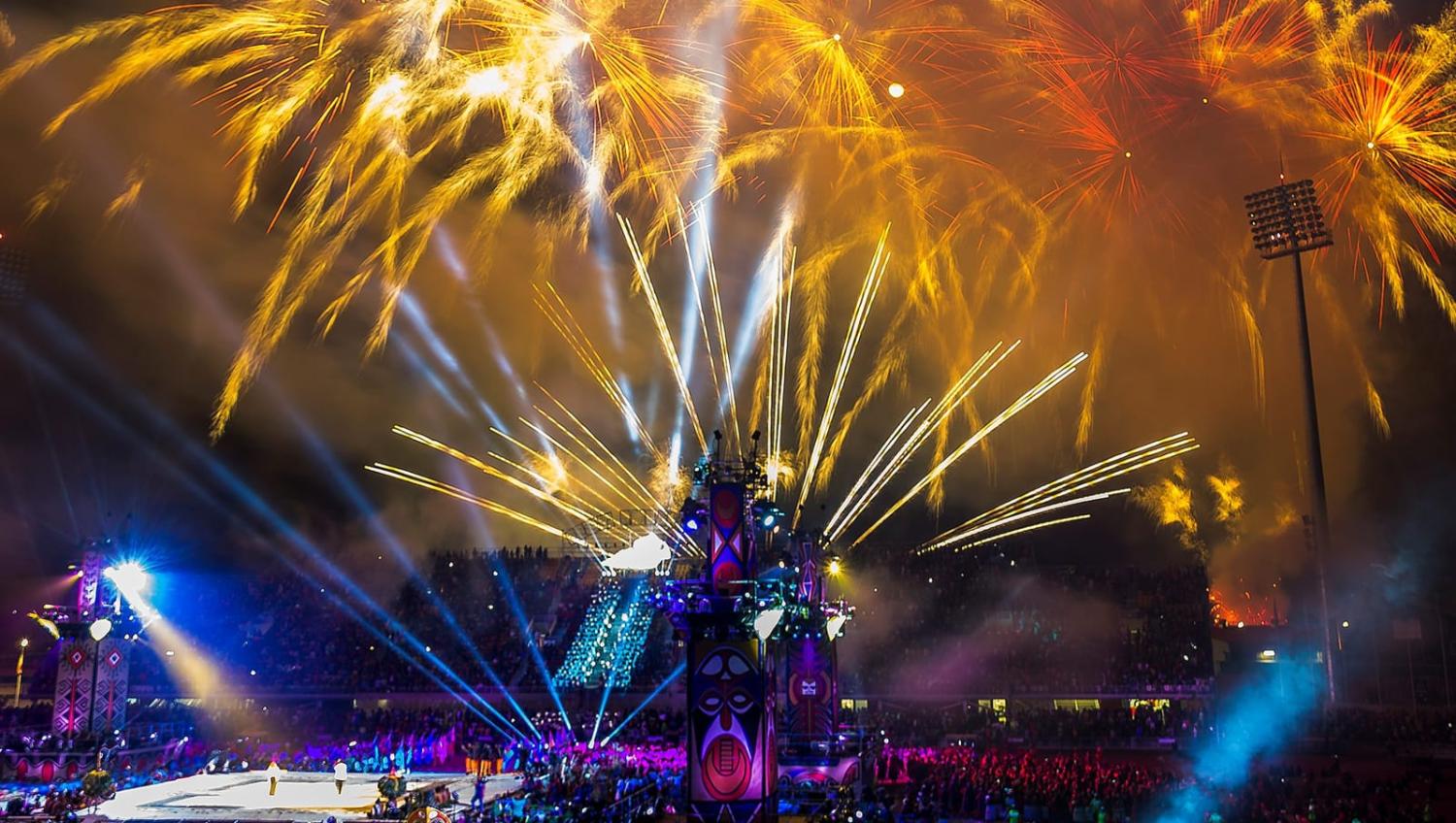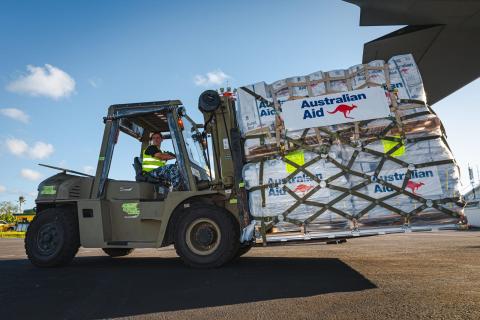The 2023 Pacific Games will be held in Solomon Islands at the end of the year. Australia’s support for the games of $17 million was announced by the Minister for International Development and the Pacific Pat Conroy during a visit to Honiara in August 2022.
It took three months, but the Department of Foreign Affairs and Trade has finally confirmed in response to a question asked in the November Senate Estimates hearing that the $17 million will be drawn from Australia’s bilateral aid budget (estimated at $103 million in 2022–23) for Solomon Islands.
The response provides a breakdown of the funding, which includes:
- five positions at the Solomon Islands Games Organising Committee and two positions at the Solomon Islands National Sports Council;
- refurbishments of dormitories at six schools in Honiara that will accommodate visiting athletes and officials;
- sports equipment for the Solomon Islands National Institute of Sport to assist Solomon Islands athletes; and
- a temporary marine centre that will be used as the venue for open water sports events.
The decision to allocate a big share – more than 16 per cent of bilateral aid, and over 10 per cent of Australia’s total aid to Solomon Islands – to the Pacific Games raises several questions.
The first is that it breaks official aid or official development assistance (ODA) rules. The Organisation for Economic Cooperation and Development countries agree on detailed rules as to what should count as aid and what should not. The relevant section of the ODA “rule-book” – the OECD Development Assistance Committee’s Statistical Directives (2021) – states that expenditure for “artistic, musical and sporting events” should be excluded.
DFAT tells me that “an ODA eligibility assessment of the funding was conducted against the OECD DAC guidelines, consistent with DFAT requirements”. Here is the justification provided by DFAT for why this support is ODA-eligible:
The funding is linked to activities that will not only benefit the Games, but will also deliver longer-term social development benefits, including for younger Solomon Islanders. For example: the upgrades across seven schools in Honiara will improve education infrastructure, building on our long-term education support; the equipment for the Solomon Islands National Institute of Sport will benefit both current and future Solomon Islands sportspeople; the water sports facility will be used by Solomon Islands to encourage uptake of open water sports by the community; and positions we are funding include a focus on legacy management of facilities and development of Solomon Islands’ sporting federations.
Unfortunately – though not surprisingly given DFAT’s lack of aid transparency – I don’t have access to the same level of detail around what exactly Australia is supporting. But in my judgement the refurbishment of dormitories could be accepted as eligible ODA, and perhaps the sports equipment, but, given the timing, the organising positions and the temporary marine centre are clearly ineligible.
It is in Australia’s interests to follow and be seen to be following OCED aid rules given the importance the Australian government rightly attaches to the rules-based international order.
Then there is the question of priorities. DFAT also responded to me on this point, noting that the funding was in response to a direct request from Honiara and saying that “Australia is supporting the Pacific Games because it’s a priority for Solomon Islands and an important event for the Pacific family”. However, let’s not lose sight of the fact that Solomon Islands remains one of the world’s poorest countries. Almost one in three Solomon Islands’ children under the age of five suffer from stunting. $17 million is a significant amount of money that could have been used to get more children into school, improve health services, or boost women’s economic empowerment.
There are also massive and urgent needs outside the Solomon Islands and the Pacific. The $17 million for the Pacific Games is almost double the $10 million Australia provided in response to last year’s Pakistan floods, a disaster that killed hundreds and displaced millions. It is about equal to the $18 million Australia has promised in response to the Türkiye-Syria earthquake, the death toll for which exceeds 41,000, and which has left 1.5 million homeless. And it is a bit less than the $20 million provided in February in response to the global food crisis.
The World Food Program has recently indicated that it will have to cut food rations for one million Rohingya refugees living in camps in Bangladesh from US$12 per person per month to US$10 per person. That $17 million Australians will give to the Pacific Games could have helped one million refugees avoid a ration cut for eight months.
But global tragedies matter little when up against the objective of countering China in the Pacific. Beijing is funding the construction of the Games’ main stadium (which has been costed at up to US$71 million). Those who argue for aid on national interest grounds calling for a “coherent international policy” in the hope that this will mean more money for aid should recognise that this will also mean more of a China-focus in Australia’s aid program, and less of an emphasis on poverty reduction. I could find no evidence that Australia has ever before supported a Pacific Games using aid funding. I doubt that this will be the last as well as the first time.



